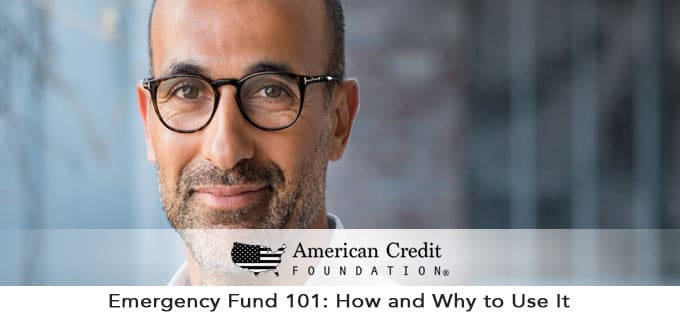
You’ve no doubt heard about the benefits of having an emergency fund. In fact, just about every financial advisor, personal finance blog, and budgeting guru will tell you that a stash of emergency cash – ideally three to six months’ worth of living expenses – is a must.
There’s a good reason that this advice has such staying power: An emergency fund can help you avoid blowing your budget or racking up costly credit card debt if you’re faced with, say, a major home repair or medical emergency. It’s a safety net that can help you survive if you lose your income.
But what, exactly, counts as an “emergency”? And when is it okay to dip into your emergency savings? Start by answering these four questions:
- Is it an actual emergency? It sounds obvious, but your emergency fund should be for, well, emergencies. An ER visit or a natural disaster. A death in the family. An unexpected and major issue with your car or your home. The loss of a job. These kinds of situations are near-impossible to predict and can be financially devastating if you’re not prepared. This is exactly why you need an emergency fund.
- Is it urgent? In other words, is this an expense that absolutely cannot be postponed? Something that’s critical for your day-to-day survival? Urgent is when your car breaks down and it’s your only way to get to work. Urgent is being laid off unexpectedly and covering your basic needs like rent and groceries until you find a new job.
- Is it unexpected? Ideally, your emergency fund should be there to cover the truly unpredictable. Avoid using it as a petty cash fund to cover things like holiday gifts, impulse purchases, vacations, or bills. And if you do find yourself tempted to raid your emergency fund to cover non-emergencies, consider revising your budget to give yourself more wiggle room for extras – and make sure you’ve accounted for all of your expenses. If you don’t have a budget, make one!
- Can you make do or find a substitute? Not every unexpected issue is a matter of life and death. For example, a broken dishwasher might be inconvenient, but you can get by hand-washing your dishes until you save up for a repair or replacement. If you can postpone the expense for a little while, you can leave your emergency fund untouched.
If you’ve answered all of these questions and determined that your situation is, in fact, an emergency, you should feel free to dip into your funds. After all, that’s why you’ve set that money aside. On the other hand, if you decide that your situation is not that urgent after all, do your best to find workarounds. Leave your emergency fund alone, and wait until you can save up the cash to cover the expense.

What if you don’t have an emergency fund?
In a perfect world, everyone would have three to six months of living expenses tucked away in a savings account, ready and waiting for a financial emergency. But the world is not perfect. Expenses come up. Budgets fall by the wayside. Life happens.
If you have a regular, non-emergency savings account, consider dipping into that to cover anything truly urgent. If you’re low on savings, you might have to consider a few less attractive options like borrowing from a family member or using your credit card. If you do resort to this option, make it a priority to pay it off ASAP – even if you have to adjust your budget and cut expenses in other areas for a few months.
Whatever you do, though, avoid payday loans at all costs. The interest rates on these short-term loans are ridiculously high, and you can quickly find yourself overwhelmed by astronomical payments. Payday loans are never a good idea. For anyone. Ever.
How can you build (or rebuild) your emergency fund?
If you don’t have an emergency fund – or if you need bulk it up after an urgent, unexpected financial situation – now’s the time to start! Here are a few ways to jump-start your savings:
- Create a budget. Make sure to account for all of your income and all of your day-to-day living expenses, monthly bills, and savings. Take what’s left over, and put it away in a dedicated emergency fund. Already have a budget? Revise it to maximize your emergency savings.
- Find a “side hustle.” An additional income source can help you boost your emergency fund quickly. Get a part time job, start a house- or pet-sitting business, or consider driving for a ride-sharing service like Uber or Lyft.
- Cut unnecessary expenses. See if you can free up some extra cash every month by cutting out things like unused gym memberships, your landline phone (you don’t really need one if you have good, reliable cell phone service), or your pricy cable TV package.
- Set up automatic bank transfers. Sometimes, the hardest part of saving is simply remembering to do it. Most banks allow you to set up recurring, automatic transfers from checking to savings. Pick an amount and decide how often you want to move those funds, and your emergency fund will build itself!
With a little planning, financial emergencies don’t have to break your budget – and you’ll thank yourself when the unexpected happens. Have questions about the best way to save? Want to make sure that emergencies don’t leave you with a pile of debt? Wondering about any additional details about the emergency fund 101? The friendly team at American Credit Foundation can offer advice on budgeting, saving, and managing debt.